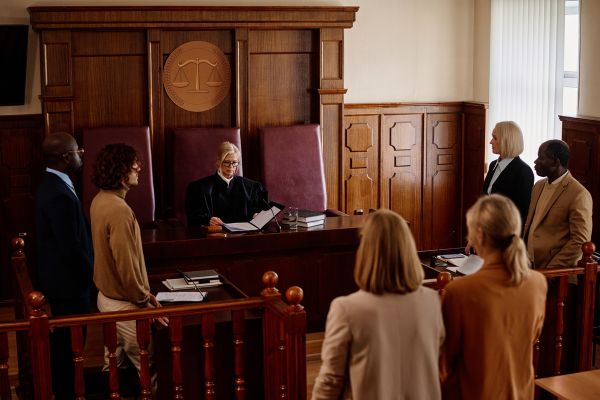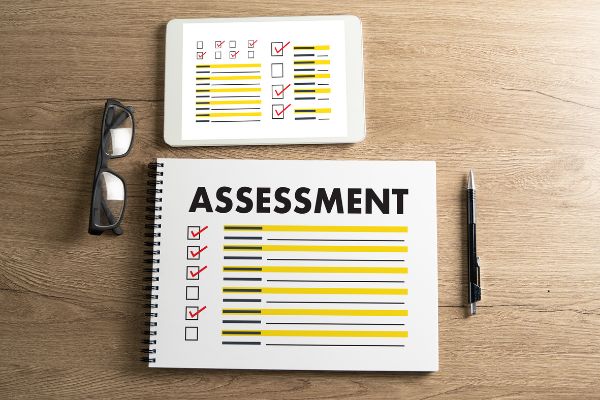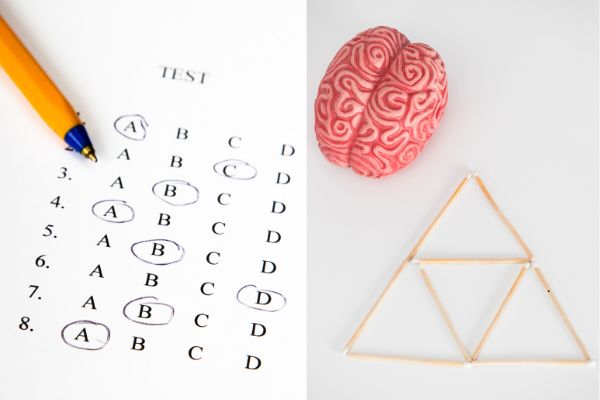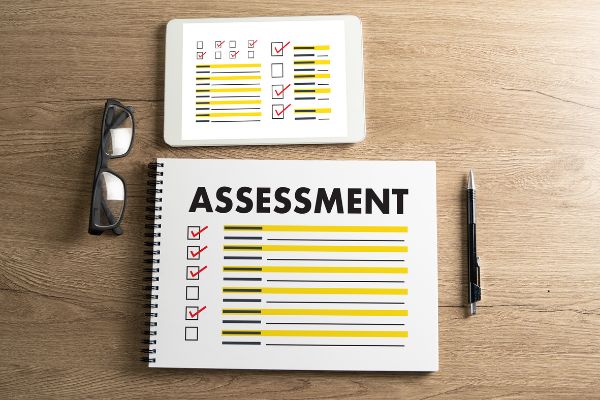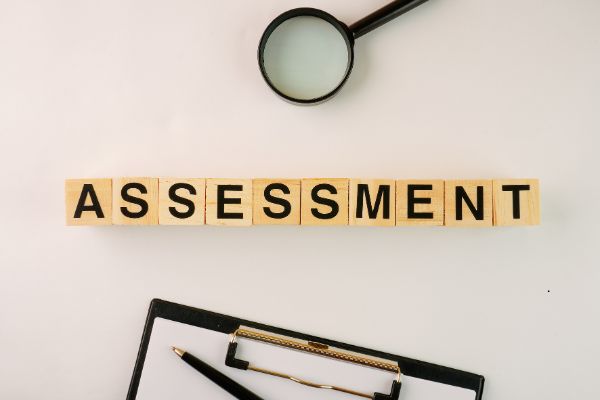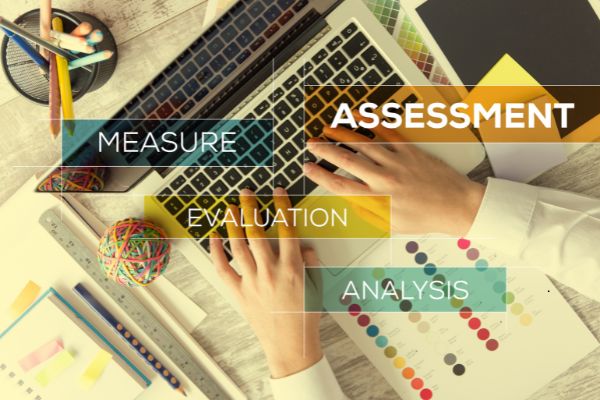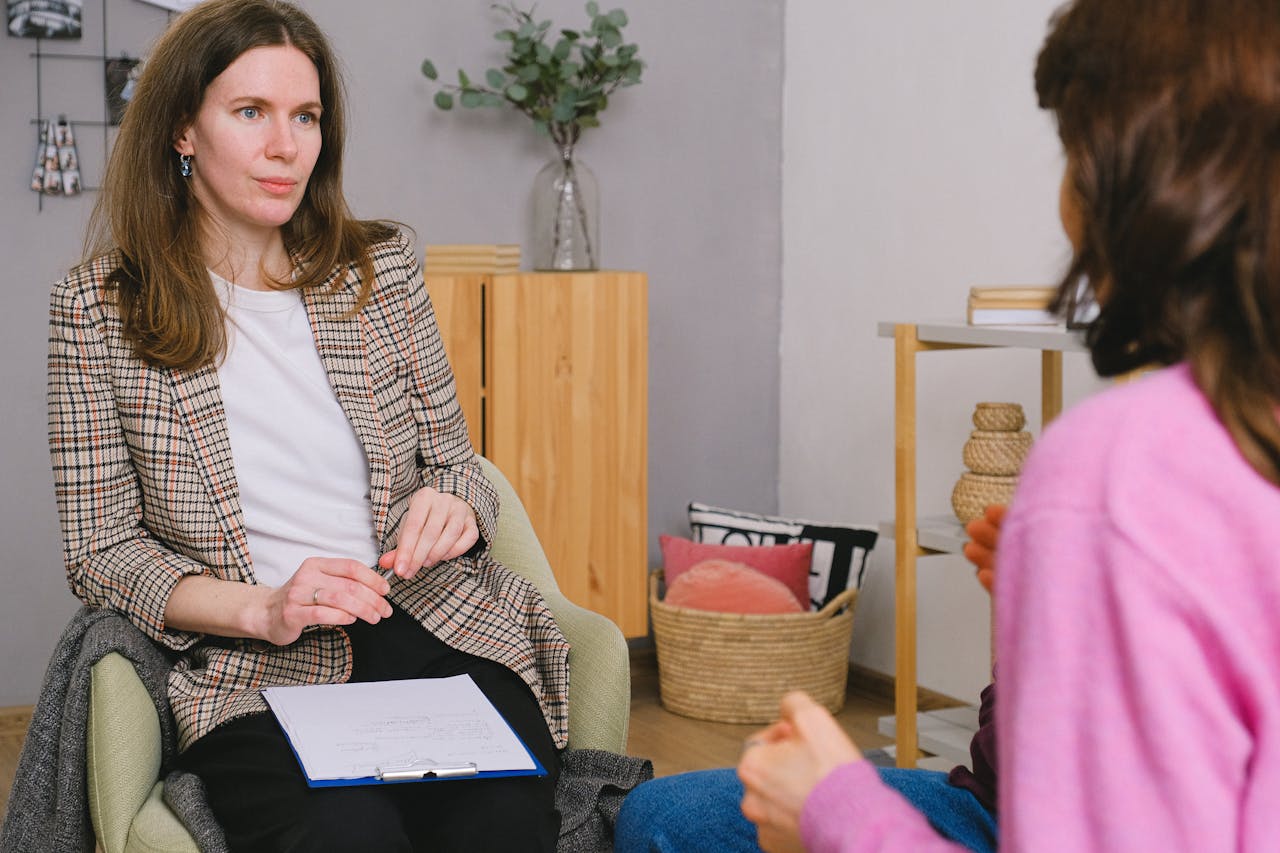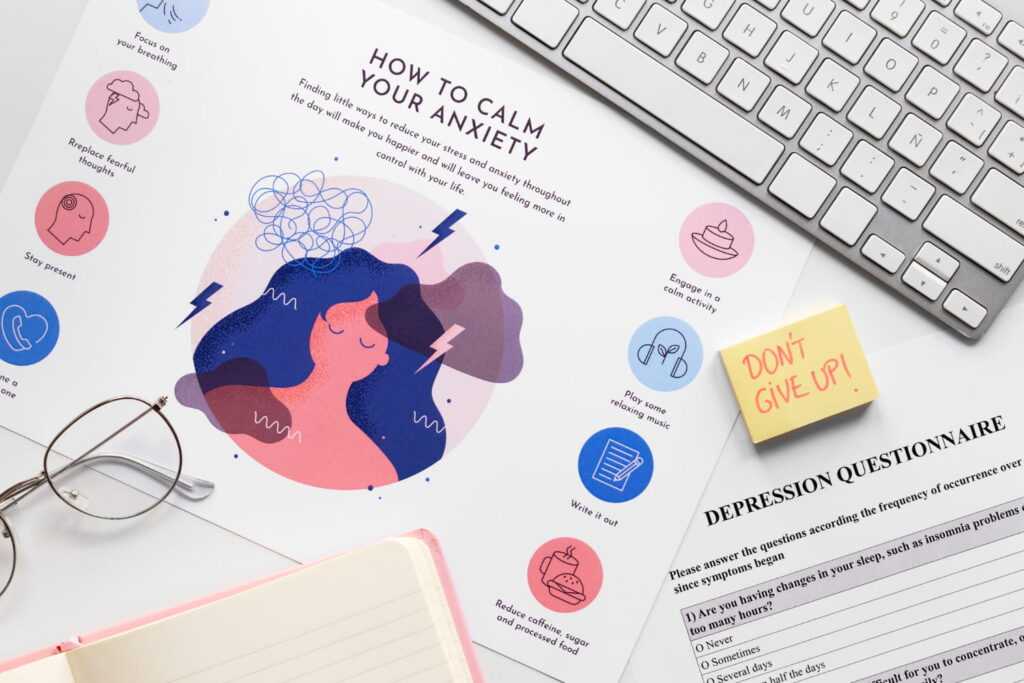How Can Forensic Psychologists Help With Mental Health?
Forensic psychologists provide mental health support beyond criminal justice, offering specialized therapy for trauma, emotional regulation, and complex psychological conditions. These professionals use evidence-based assessment techniques and court-tested methods to help everyday people with anxiety, depression, PTSD, personality disorders, and major life transitions.
Key services forensic psychologists offer for mental health include:
- Comprehensive psychological evaluations for accurate diagnosis
- Trauma-informed therapy using specialized recovery techniques
- Documentation for insurance coverage and workplace accommodations
- Crisis intervention and emotional regulation skills training
- Prevention strategies for high-risk behaviors and burnout
Unlike traditional therapists, forensic psychologists bring unique expertise from working in high-pressure legal environments, making them particularly effective at helping clients who haven’t responded well to standard therapy. Their structured, evidence-based approach combines objective assessment tools with compassionate support, creating personalized treatment plans that address root causes rather than just symptoms.
Most insurance plans cover forensic psychology services when medically necessary, and no court order is required to seek their help for personal mental health needs.

How Forensic Psychologists Help People With Mental Health Conditions
Forensic psychologists regularly work with clients who have serious mental health needs. They bring extensive experience working with various challenging conditions. Their knowledge helps them support people dealing with complex mental health situations effectively.
- Forensic psychologists often help people with anxiety, depression, and trauma-related stress. Many of their clients experience these common mental health challenges daily. They develop special techniques that work well for managing these difficult conditions through comprehensive therapy services. Their methods help people understand and cope with symptoms that disrupt normal life.
- Personality disorders and addiction issues are also areas where forensic psychologists excel. They frequently support individuals managing substance abuse or emotional instability problems. Their deep understanding helps tackle the root causes of addictive behaviors effectively. According to the American Psychological Association, specialized training in forensic methods enhances treatment outcomes for complex cases. They teach people better ways to handle emotions and build healthier relationships.
- Growing awareness of neurodiversity has expanded their expertise to include autism and ADHD. Forensic psychologists adapt their strategies to support people with different brain types through neuropsychological evaluations. They help neurodiverse individuals manage stress and improve their social interactions. Their flexible approach works well for people who think and process differently.
Example of Skills in Action: Forensic psychologists can help someone with emotional instability understand their triggers better. They teach clients how to reduce harsh self-judgment and improve relationships. This approach often leads to better emotional control and stronger personal connections.
Understanding and Supporting Trauma Recovery
Forensic psychologists frequently work with people who have experienced difficult life events. They help trauma survivors process and overcome their past experiences effectively. Their work includes supporting both victims and others affected by traumatic situations through personal injury evaluations. They understand how trauma can completely change someone’s life and daily behavior patterns.
Safety and stabilization form the foundation of their trauma work with clients. Forensic psychologists provide education to help people understand their reactions through trauma perspectives. The National Institute of Mental Health recognizes trauma-informed care as essential for recovery. They build essential skills that help individuals manage crisis moments more effectively. Their approach gives people tools to handle difficult situations when they arise.
- Trauma processing requires specialized techniques that forensic psychologists have mastered through their training. They recognize that trauma significantly impacts daily functioning in ways people don’t always notice. Their various trauma-informed methods help people safely work through difficult memories and experiences. This process helps individuals regain a sense of personal control over their lives.
- Reducing harmful behaviors is another key area where forensic psychologists provide valuable support. They work with people struggling with self-harm, substance abuse, or other risky choices using cognitive behavioral therapy approaches. Their approach focuses on understanding and addressing the underlying causes of these behaviors. They help individuals recognize personal risk factors and develop much healthier coping strategies.
Example of Skills in Action: Someone experiencing stress after a car accident could benefit significantly from forensic psychology techniques. These methods help reduce flashbacks, manage daily anxiety, and improve overall life functioning.
Building a Safe Environment for Personal Growth
Forensic psychologists regularly work with people who have faced harsh judgment about their actions. They understand how important it is to create safe spaces where healing can happen. Their experience teaches them that people need acceptance before they can make positive changes. This approach helps clients feel secure enough to explore difficult topics without fear.
- Building trust forms the foundation of their work with people in vulnerable situations. These experts prioritize creating confidential environments where clients can discuss emotions honestly. The American Academy of Forensic Psychology emphasizes the importance of therapeutic alliance in treatment success. They approach personal issues with genuine compassion and curiosity rather than judgment. Their methods help people feel safe enough to share their deepest concerns and struggles.
- Forensic psychologists help clients develop self-compassion as a tool for moving forward positively. They assist people in reframing their understanding of past actions and decisions through clinical psychological evaluations. Their approach focuses on identifying underlying emotions while building foundations for lasting change. This process helps individuals develop healthier relationships with themselves and their past experiences.
Example of Skills in Action: Someone overwhelmed by guilt over past mistakes can find security in this supportive approach. They work through issues using structured methods that address underlying triggers effectively. This process helps rebuild a positive self-image and reduces fear about seeking help.
Developing Better Emotional Control Skills
People who struggle with life challenges often have difficulty managing their emotions effectively. Forensic psychologists specialize in helping individuals gain better control over their emotional responses. Their training focuses on teaching people how to handle high-pressure situations more successfully. This expertise proves valuable for anyone dealing with overwhelming feelings or stress.
- Forensic psychologists help people identify what triggers their strongest emotional reactions in daily life. They explore why certain emotions arise and help develop practical coping strategies. According to Mental Health America, emotional regulation skills are fundamental to mental wellness. This skill proves essential for anyone struggling with mental health challenges or feeling overwhelmed. Their methods give people concrete tools to manage difficult emotions when they arise.
- Working in challenging environments has equipped these professionals with tools for staying calm under pressure. They bring these resilience-building techniques to clients facing stress in work or home situations through specialized family therapy when needed. Their approach helps people develop mental strength to handle difficult circumstances more effectively. These skills prove valuable for managing both everyday stress and major life challenges.
Example of Skills in Action: Someone facing relationship problems or anger issues can benefit from forensic psychology techniques. These methods help create practical toolkits for approaching challenges with greater calmness and resilience.
Managing Life Changes and Feeling Unstuck
Forensic psychologists understand how major life transitions can create significant personal challenges. They help clients make sense of changes like career shifts, relationship changes, or relocations. Their background equips them to identify patterns that may be preventing progress. This expertise helps people unlock new paths forward when they feel stuck.
- These experts help clients recognize how past experiences continue to shape their current actions. They suggest practical ways to break out of unhelpful behavioral patterns that limit growth. The American Board of Professional Psychology certifies specialists who excel in these complex assessments. Their approach focuses on understanding connections between past and present to create positive change. This insight helps people make more conscious choices about their future direction.
- Forensic psychologists excel at identifying inner strengths that clients may not recognize in themselves. They empower people to make informed choices during major life transitions and changes through comprehensive forensic evaluations. Their methods encourage personal growth rather than feeling overwhelmed by circumstances. This supportive approach helps individuals navigate uncertainty with greater confidence and clarity.
Example of Skills in Action: Someone experiencing stress from a major career change can benefit from forensic psychology tools. These methods help regulate emotions, maintain focus, and approach new situations with a balanced perspective.
Preventing Problems Before They Start
One unique aspect of forensic psychology is its focus on preventing problems before they escalate. These professionals are not just reactive but trained to predict and prevent harmful behaviors. They use specialized techniques to spot warning signs early and intervene effectively. This proactive approach helps people avoid negative outcomes that could impact their lives significantly.
- These experts are trained to recognize early signs of harmful behaviors in everyday situations. They help clients avoid negative outcomes by creating personalized prevention strategies that work. The National Alliance on Mental Illness supports early intervention as key to better outcomes. This forward-thinking mindset benefits people who may not recognize risky patterns in their lives. Their approach helps individuals make better choices before problems become more serious.
- Forensic psychologists are skilled at supporting people in high-stress environments and preventing burnout. They are experts at managing stress, building resilience, and helping people navigate overwhelming situations through co-parenting counseling when family dynamics contribute to stress. Their techniques work well for stress related to work, family, or major life transitions. These skills help people maintain their mental health during challenging periods.
Example of Skills in Action: Someone experiencing high stress from demanding work can benefit from forensic psychology techniques. These methods help recognize early burnout signs, reduce emotional reactivity, and create sustainable paths forward.

Benefits of Forensic Evaluation Beyond Legal Requirements
Forensic evaluations are often misunderstood as something only needed for court cases or legal situations. Many people don’t realize that these comprehensive assessments offer significant benefits for anyone seeking thorough mental health support. Unlike standard psychological evaluations that might focus on immediate symptoms, forensic evaluations provide an in-depth analysis of your complete psychological profile. They examine how different factors in your life interact to affect your mental health and daily functioning.
The structured, evidence-based approach of forensic evaluations creates valuable opportunities beyond legal requirements. These assessments can provide the detailed documentation needed for insurance coverage, workplace accommodations, or educational support services through psychoeducational testing. They also offer comprehensive treatment planning that addresses root causes rather than just surface symptoms. The American Board of Forensic Psychology maintains high standards for these comprehensive assessments. Whether you’re struggling with complex mental health challenges, need objective assessment for personal clarity, or require detailed documentation for institutional purposes, forensic evaluations provide thorough insights that standard assessments often miss. Understanding these broader applications can help you make informed decisions about your mental health care options.
Comprehensive Mental Health Picture and Diagnosis
Forensic evaluations provide incredibly thorough assessments that go far beyond typical mental health screenings. These comprehensive evaluations examine multiple layers of psychological functioning to create complete mental health pictures. The detailed process creates clarity about complex psychological situations that other assessments might miss.
Key components of comprehensive forensic evaluations include:
- Detailed cognitive testing and intellectual functioning assessment
- Personality assessments using validated psychological testing instruments
- Trauma history analysis and its impact on current functioning
- Behavioral pattern examination across different life environments
- Environmental influences and their effect on psychological wellbeing
- Family history analysis and genetic predisposition factors
- Medical conditions review and their psychological impacts
- Social factors assessment including relationships and support systems
Unlike standard clinical assessments that focus on specific symptoms, these evaluations investigate interactions. They examine how different mental health factors work together to affect daily life. This multi-dimensional approach often reveals underlying issues that shorter evaluations completely overlook, particularly important for immigration evaluations where comprehensive documentation is crucial.
The structured methodology ensures no important psychological aspect gets missed during assessment. These evaluations use validated tests and evidence-based tools to gather objective data effectively. The Florida Board of Psychology requires adherence to strict professional standards for these assessments. The result provides detailed psychological profiles with clarity about complex mental health situations.
Objective Assessment for Treatment Planning
The evidence-based nature of forensic evaluations creates more targeted and effective treatment recommendations. These assessments remove guesswork from treatment decisions using standardized protocols and objective measurement tools. Mental health professionals receive detailed information about which specific interventions work best for individuals.
Forensic evaluations provide crucial treatment planning information including:
- Personal strengths and available resources for recovery
- Therapeutic approaches that match individual learning styles effectively
- Personality traits that influence treatment success rates
- Life circumstances that affect treatment participation and outcomes
- Motivation levels and readiness for different therapeutic interventions
- Potential barriers to progress and strategies to overcome them
- Realistic treatment goals based on individual capabilities and circumstances
- Specific intervention strategies tailored to personal psychological profiles
These evaluations examine not just existing problems but also available personal resources. They identify which therapeutic approaches match someone’s personality traits and life circumstances best. This personalized approach leads to treatment plans that people can actually follow successfully.
The structured assessment process reveals important details about treatment readiness and potential obstacles. This information helps therapists design realistic goals and choose appropriate intervention strategies effectively. For families dealing with separation, attachment and bonding assessments provide crucial insights. The objective data also helps track progress more effectively throughout the entire treatment process.
These evaluations provide specific recommendations for different types of support needed in recovery. The detailed analysis helps coordinate care between multiple providers when comprehensive treatment becomes necessary.
Documentation for Insurance and Disability Claims
Forensic evaluations provide detailed documentation required for various institutional processes and benefit applications. Insurance companies often require comprehensive psychological evaluations before approving coverage for ongoing mental health treatment. The thorough methodology and professional credibility of these evaluations carry significant weight with institutions.
Essential documentation components for institutional approval include:
- Specific diagnostic information using standardized clinical criteria
- Functional impairment assessments showing real-world impact of conditions
- Treatment necessity documentation explaining why specific interventions are required
- Objective testing results supporting diagnostic conclusions and treatment recommendations
- Evidence-based conclusions that justify coverage for specialized treatments
- Functional assessment information for workplace accommodation requests
- Cognitive and psychological testing results for educational accommodation needs
- Professional credibility that carries weight with insurance and institutional reviewers
These detailed reports include diagnostic information and functional impairment assessments that insurance providers need. The objective testing results help justify coverage for specialized treatments or intensive therapy programs. The APA Practice Organization provides guidelines for proper documentation standards. This documentation can be crucial for accessing expensive but necessary mental health services effectively.
Workplace accommodation requests often require detailed psychological documentation to support necessary job changes. These evaluations provide specific functional assessment information that human resources departments need for decisions. This documentation helps ensure appropriate workplace protections and necessary support services for employees.
Educational institutions may require comprehensive evaluations for academic accommodations or specialized student services. The detailed testing results help schools understand what specific support students need to succeed. For families navigating custody changes, reunification counseling documentation can be essential.
Conclusion
Forensic psychologists offer unique mental health support that extends far beyond traditional courtroom settings. Their specialized training in complex human behavior assessment makes them valuable allies for anyone facing challenging life circumstances. Whether you’re dealing with trauma, emotional regulation issues, life transitions, or need comprehensive psychological evaluation, these professionals provide evidence-based solutions that address root causes rather than just symptoms. The American Psychology-Law Society continues to advance the field’s contributions to mental health care. Their ability to create safe, non-judgmental environments while delivering objective assessments sets them apart in the mental health field.
Taking advantage of forensic psychology services can transform your approach to mental wellness and personal growth. From comprehensive evaluations that reveal hidden psychological patterns to specialized documentation for insurance and workplace needs, these professionals offer practical solutions for real-world challenges. If you’re seeking thorough mental health support that combines clinical expertise with real-world application, consider learning more about our team and exploring how forensic psychology can benefit your specific situation. The investment in comprehensive psychological assessment and specialized treatment approaches can provide the clarity and tools needed for lasting positive change. To begin your journey toward better mental health, contact us today for a consultation.
FAQs
How is a forensic psychologist different from a regular therapist for mental health issues?
Forensic psychologists have specialized training in complex behavioral assessment and high-pressure situations. They provide more comprehensive evaluations and can work effectively with resistant clients or complex cases.
Do I need a court order to see a forensic psychologist for mental health support?
No court order is required to seek forensic psychology services for personal mental health needs. Many people choose these professionals for their thorough assessment skills and specialized expertise.
How long does a forensic mental health evaluation typically take to complete?
Most comprehensive forensic evaluations take between 3 to 8 hours spread across multiple sessions. The exact time depends on the complexity of your situation and assessment goals.
Will my insurance cover forensic psychology services for mental health treatment?
Many insurance plans cover forensic psychology services when medically necessary for mental health treatment. Check with your provider about coverage for psychological evaluations and ongoing therapy services.
Can forensic psychologists help with workplace stress and professional mental health issues?
Yes, forensic psychologists excel at addressing workplace-related mental health challenges and stress management. They can also provide documentation for workplace accommodations and disability claims when needed.







